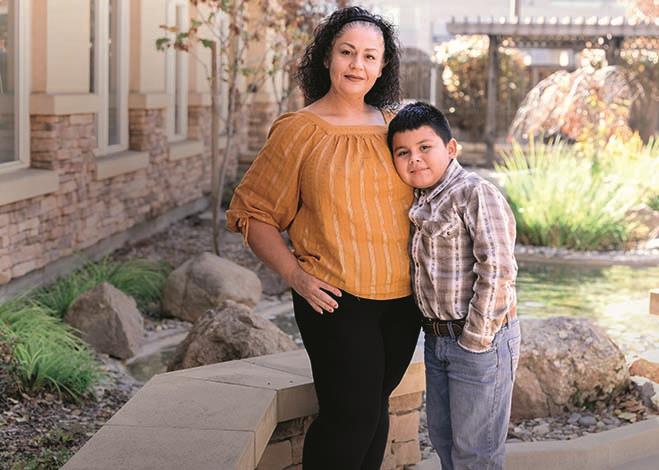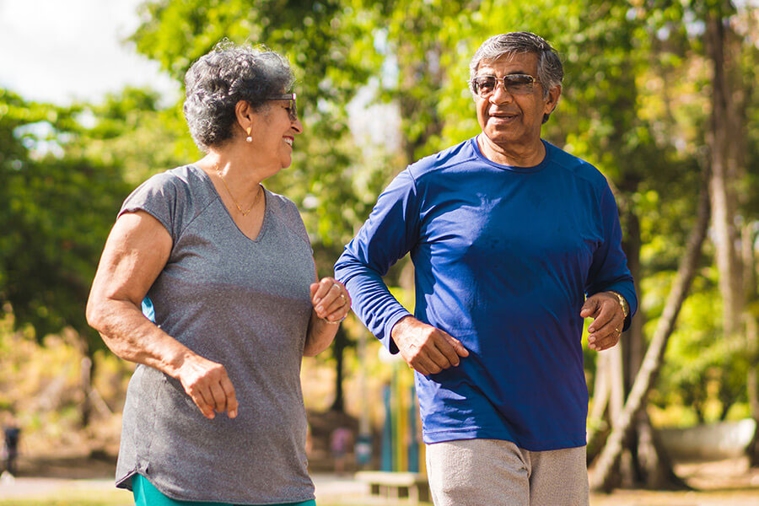
How Weight Loss Can Encourage Whole-Body Transformation
Learn how one woman lost 185 pounds — and gained quality time with her children.
During a trip to an amusement park, Alejandra Torres realized it was time for a lifestyle change. The Olivehurst resident’s weight had risen to 380 pounds, and she couldn’t go on rides with her son.
“I was getting bigger and bigger, and I was at higher risk of having high blood pressure and diabetes, which run in my family,” she says. “I just really wanted to be there for my kids and enjoy life with them for as long as I can.”
At her next primary care appointment, Torres’ doctor referred her to Arturo Garcia, MD, a surgeon at Adventist Health and Rideout who specialized in bariatrics, for the treatment of obesity. “He read my mind,” she says. “I had been trying to look into a weight-loss program, but I didn’t want to drive far. I wanted something local.”
The support to succeed
Dr. Garcia refers anyone who wants to undergo weight-loss surgery to a registered dietitian before scheduling the procedure. “We make sure they are educated on how to eat well before and after their operation so they’re set up for success,” he says.
At the first appointment, Dr. Garcia’s team gave Torres a recommended diet to follow. “I lost 100 pounds on my own with diet and exercise,” she recalls. “I eat a lot of vegetables. I don’t prohibit myself from eating what I want. I just watch the amount and don’t overeat.”
When she was ready for her operation, Torres had two options: sleeve gastrectomy or gastric bypass. “With a sleeve gastrectomy, we remove about 70 percent of the stomach, so you feel full quickly,” Dr. Garcia says. “In the case of gastric bypass, we leave the stomach intact but make a small stomach pouch and rearrange the intestines, essentially passing over a large portion of the stomach.”
Dr. Garcia shared the pros and cons of each technique but left the decision to Torres, who opted for the sleeve gastrectomy.
Results for a lifetime
After her operation, Torres lost an additional 85 pounds and gained a greater quality of life. “My walking speed is a lot better, I sleep more comfortably and I have less knee pain,” she says.
Dr. Garcia says many patients experience results that go beyond weight. “We see people becoming more mobile, enjoying time with their kids, doing things that were difficult for them before,” he explains. “That’s the most fulfilling part — to see that we’re helping them with their health but also their emotional and mental well-being.”
Lasting improvement
Two years after her surgery, Torres says she has the tools to stay healthy, thanks to Dr. Garcia and his team. “I can’t thank them enough for the amazing job they did. They all took great care of me,” she says.
Torres’ journey to better health started with a plea from her son to get on an amusement park ride with him, and she hasn’t forgotten that moment. “We go to the park now more than ever. We even have a season pass,” she explains. She never misses an opportunity to get on a roller coaster with him.
Expert care through the weight-loss journey
Adventist Health and Rideout’s bariatrics program goes above and beyond surgery. Here’s how Arturo Garcia, MD, and his team of experts will help you achieve wellness every step of the way:
Regular meetings with a registered dietitian to learn about lifestyle changes, including dietary improvements and increased exercise, to help you succeed before and after surgery
Evaluation with a psychologist, licensed social worker or psychiatrist for mental and emotional support through your weight-loss journey
Routine post-operation follow-ups with Dr. Garcia and your dietitian to ensure you are on track to live your healthiest life



